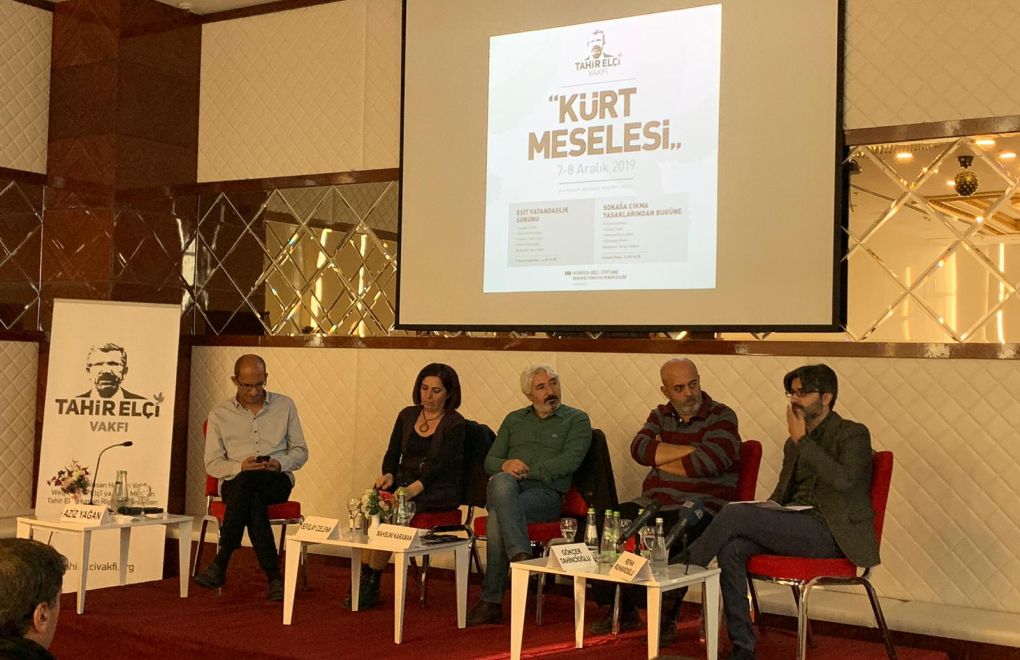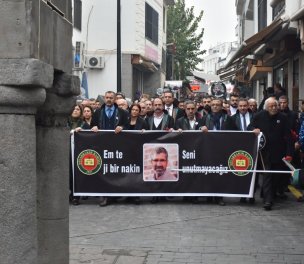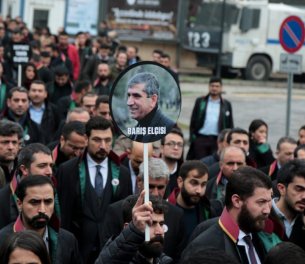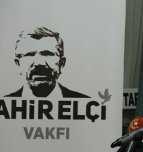* Photo: Tahir Elçi Human Rights Foundation
Click to read the article in Turkish
Tahir Elçi Human Rights Foundation organized a two-day panel discussion on "Kurdish Question". Held in Diyarbakır on December 7, the "Problem of Equal Citizenship" session of the panel was attended by several people as well as Türkan Elçi, the wife of late Tahir Elçi.
'Discussions before 1924 were more constructive'
As reported by Mezopotamya Agency, taking the floor first, lawyer Mahsuni Karaman underlined that the concept of citizenship should not be approached with the perspective of fraternity, but that of equality.
Referring to the Constitution of Turkey dated 1924, lawyer Karaman said, "There were quite constructive discussions before the 1924 Constitution. In that period, they discussed 'being from Turkey', which could also solve the problems of today. However, the 1924 Constitution has introduced the understanding that everyone bound to the Republic of Turkey with a bond of citizenship is a Turk. This mindset is still prevalent today."
CLICK - Tahir Elçi's Struggle to Continue at the Tahir Elçi Human Rights Foundation
'Access to justice is one of the most importat criteria'
Speaking after lawyer Mahsuni Karaman, journalist Gökçer Tahincioğlu raised concerns over the policies of impunity in Turkey. Referring to the cases of Mahsun Mızrak, Enes Ata, Kızıltepe JİTEM and Şemdinli, which have resulted in impunity, Tahinioğlu stated the following in brief:
"Equal citizenship should be approached from the perspective of access to justice. The access to justice is one of the most important criteria for citizenship. There are several negative examples in Turkey in that regard. There are more negative examples in this region.
"Several child deaths that could be solved even without the need for legists or security experts have not been uncovered. Or, the evacuation and massacre of villages and cities in the 1990s mostly undertaken by the JİTEM have mostly resulted in violation of statutory limitations."
'When there is no mother tongue, citizenship comes short'
Academic Sevilay Çelenk approached equal citizenship through the concepts of mother tongue and linguistic rights:
"A person who is prevented from speaking in his or her mother tongue is disadvantaged in every area of life. It is, in fact, a result of making an enemy of a language. The issue of Kurdish is viewed as an issue of education in mother tongue and even this is perceived as a threat.
"When seen from the perspective of access to media, a Kurdish child who reaches school age is deprived of his or her language ability, which he or she gained in free communication. It is a state of speaking after all and depriving a person of his or her language leads to shortcomings in citizenship."
Taking the floor last in the panel, Diyarbakır Representative to Right Initiative Reha Ruhavioğlu indicated that the Kurdish question is a ethno-political problem, beyond a solely ethnic one.
Underlining that Turkey resorted to military means again in approaching the Kurdish question, Ruhavioğlu said, "The core of Kurdish question is a demand for ethnic equality." (RT/SD)







